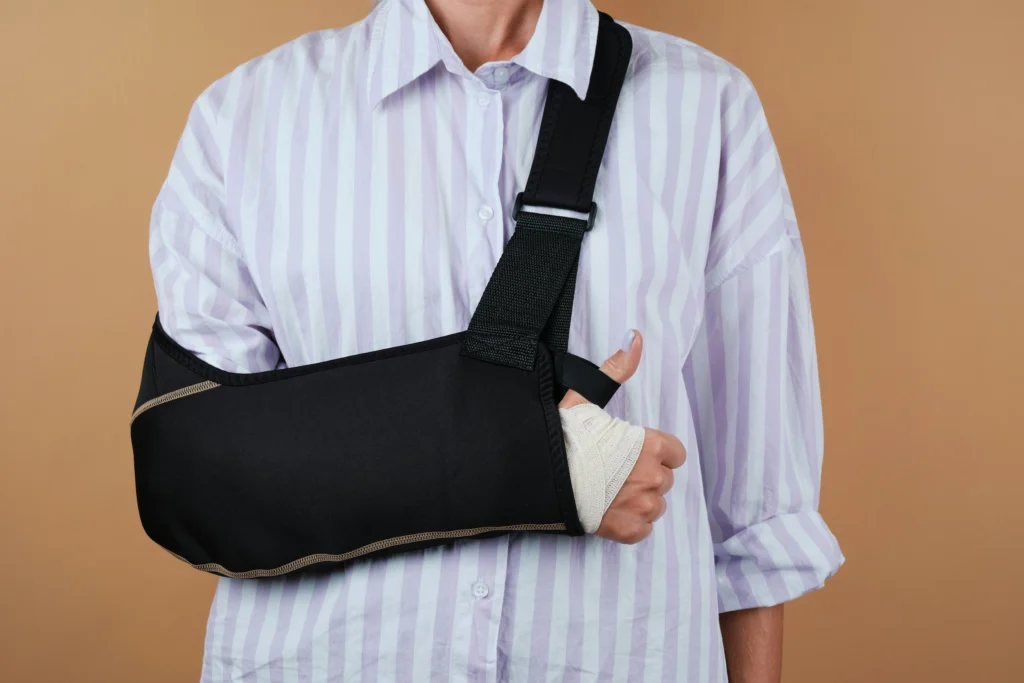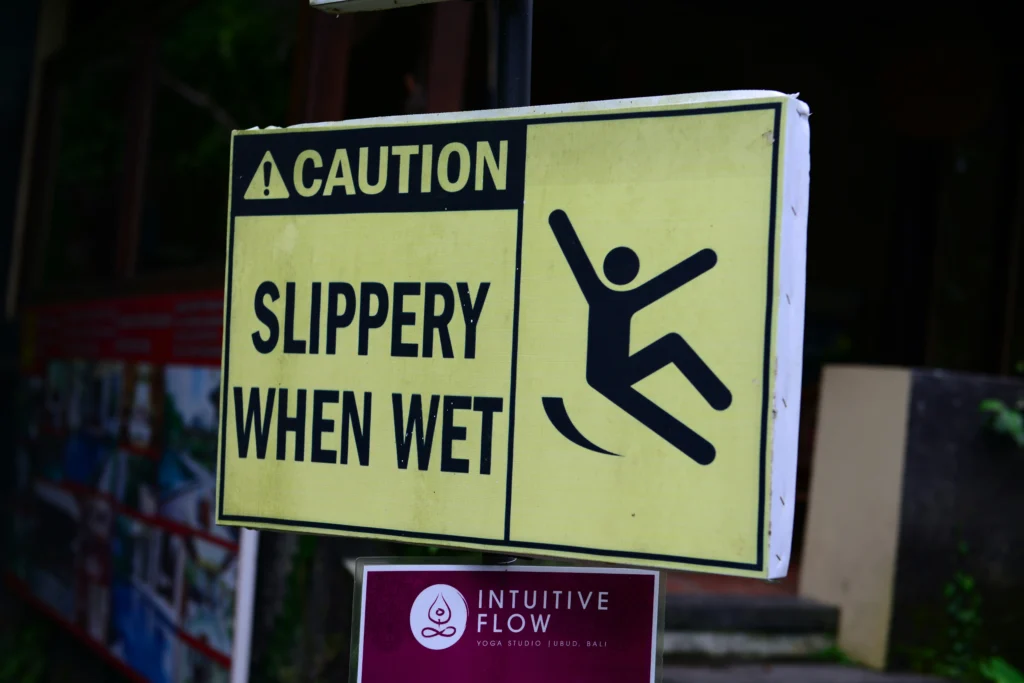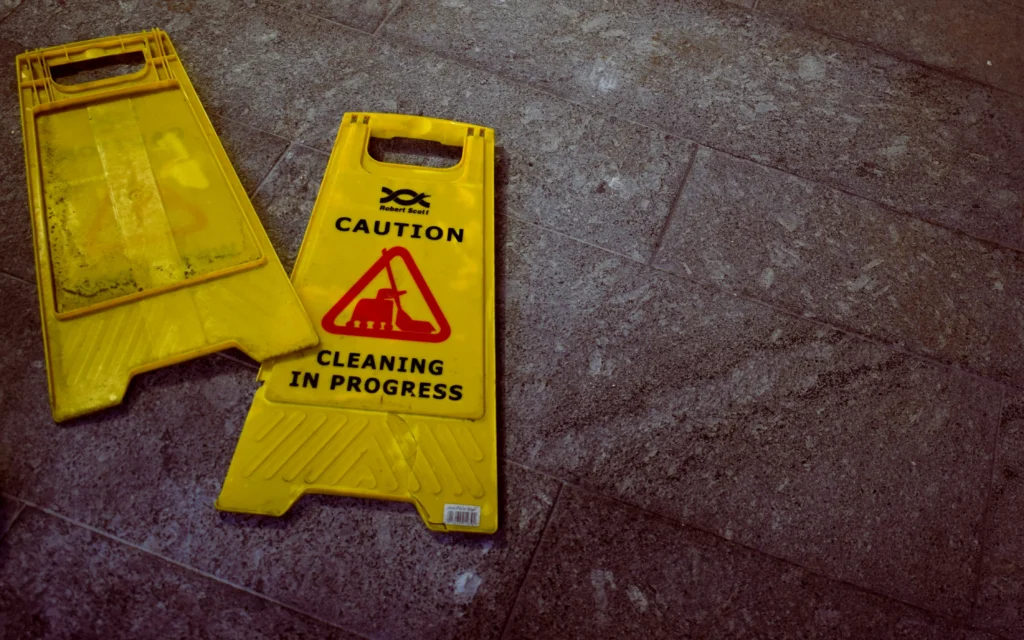If you’ve suffered an injury at work, you’re not alone. Falls are one of the most common causes of workplace injuries in Illinois. A simple misstep can lead to serious harm, especially when you’re just trying to do your job.
At Illinois Lawyers, we are lawyers who help you find the best attorney for your case. We’ve been connecting injured workers with top Illinois workers’ compensation attorneys since 2001. Nobody pays us to recommend them. We give you the same advice we would provide to a friend or family member. Contact us at 312-346-5320 or 800-517-1614 for free, confidential legal guidance — or fill out our contact form, and we’ll reach out to you.
Key Takeaways
- Your slip and fall injury at work must have a clear, work-related cause — like a wet floor or loose carpet. Unexplained or idiopathic falls aren’t covered under Illinois law.
- Never speak to insurance adjusters before consulting an attorney for injury at work — they can twist your words to deny benefits.
- Illinois workers’ comp can cover medical bills, lost wages, and get you a settlement when you are done with your care.
- Skilled lawyers for injury at work can prove your claim, challenge denials, and handle insurance negotiations.
What Counts as a Slip and Fall Injury at Work?

In Illinois, workers’ compensation covers most job-related injuries, but not every fall automatically qualifies. To have a valid claim, you need an explained fall — one with a clear, work-related reason.
Examples include:
- The floor was wet or slippery.
- You tripped on loose carpeting or debris.
- You were carrying work materials and lost balance.
If you simply fell for no clear reason — for example, fainting or losing balance without any workplace factor involved — that’s considered an unexplained or idiopathic fall. In Illinois, that usually does not count as a compensable injury claim.
Why “Explained” Falls Matter
Illinois workers’ compensation is a no-fault system, so you don’t have to prove your employer was negligent — but your injury must still be work-related. If you can’t explain why you fell, the insurance company may claim your accident wasn’t caused by work. Clear details strengthen your case, so describe exactly what happened.
Never give a recorded statement without first speaking to an injury at work attorney. Adjusters often try to get you to admit you “don’t know why” you fell — and that can ruin your claim. Stick to the facts and get legal advice before you speak.
Common Injuries from Workplace Falls
Falls can cause anything from minor bruises to serious, long-term injuries. Common examples include:
- Back injury: Falls can cause herniated discs, muscle strains, or spinal damage. A severe back injury from a slip and fall at work may require surgery and months of rehab.
- Head injury: Even short falls can cause concussions or traumatic brain injuries. Symptoms may take hours to appear, so get medical care right away.
- Fractures and sprains: Broken wrists, knees, or shoulders are common, along with torn ligaments and nerve damage.
What to Do Right After a Fall

Act fast after your accident to protect your health and your claim. Here’s what to do:
- Get medical treatment immediately: Even if you feel okay, see a doctor. Some injuries show up later. Tell your doctor it happened on the job, so it’s documented.
- Report it to your employer: Notify your supervisor right away and file a written report. Keep a copy for your records.
- Identify witnesses: Get contact info for anyone who saw the fall or knows about the hazard.
- Document the scene: Take photos of spills, uneven floors, or cords before they’re cleaned up or repaired.
- Call Illinois Lawyers: Before speaking to insurance, talk to an attorney for injury at work to protect your rights.
- Follow all medical advice: Attend every appointment and follow treatment plans to show your injury is serious.
Your Right to Workers’ Compensation
If a work-related hazard caused your injury, you’re likely covered under the Illinois Workers’ Compensation Act. Benefits can include:
- Full payment of medical expenses. No co-pays, no out of pocket expenses.
- Temporary total disability (TTD) 2/3 of your average weekly wage if you can’t work during recovery.
- Permanent partial disability A settlement to compensate you for the extent of your injuries.
- Vocational rehabilitation if you can’t return to your old job, they need to pay to help you find a new one.
Why You Need Legal Help

We always hear the question “Do I need a lawyer for workers’ compensation?”. Yes. Workers’ comp sounds simple, but it rarely is. Insurance companies have legal teams focused on cutting payouts, so you need someone who knows the system and fights for you.
An experienced lawyer can:
- Prove your fall was work-related.
- Challenge denials and stop a nurse case manager from interfering with your case.
- File all paperwork at the Illinois Workers’ Compensation Commission including trial motions.
- Deal with adjusters so you don’t have to.
- Go to trial when needed.
The good news: injury at work attorneys work on contingency in Illinois — no upfront fees, and they only get paid if you win (typically 20% of your recovery). You will almost always end up with more money in the end with a lawyer, even after their small fee.
How Illinois Lawyers Helps Injured Workers
At Illinois Lawyers, we connect you directly with trusted lawyers for injuries at work across Illinois — fast, free, and confidential.
Here’s how we help:
- Free consultations: Get real advice, not sales pitches.
- Right match: We pair you with the best lawyers for injury at work who focus only on workers’ comp cases.
- Proven experience: Our network attorneys handle these cases regularly and have a proven track record.
- No upfront fees: You don’t pay unless you win.
- Full support: From explaining your rights to fighting insurance denials, your lawyer for injury at work handles it all.
Call (312) 346-5320 or (800) 517-1614 for free, 24/7 advice. We’ll make sure you talk to someone who knows the system — and knows how to win your case.




